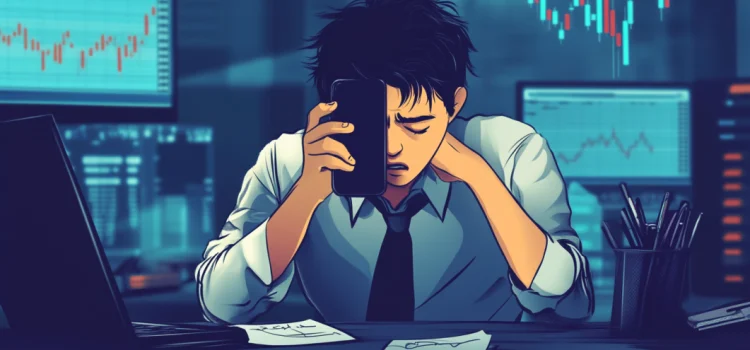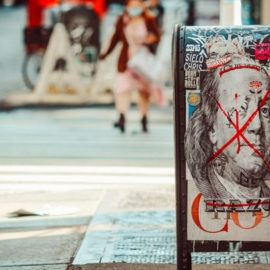
Why are greed and fear the two most impactful emotions in the stock market? How does an investor’s greed increase fear?
According to Howard Marks, the psychological cycle that influences the securities market most is the cycle between greed and fear. These two emotions result in rash decisions that cause economic swings.
Keep reading to learn more about the role of greed and fear in the stock market.
Investors Cycle Between Greed and Fear
Marks argues that the most promising parts of foundational cycles—such as economic growth, high profits, and easy access to credit—fuel investors’ greed, causing them to act imprudently, which in turn contributes to downswings in foundational cycles that increase fear.
(Shortform note: To track these fluctuations between greed and fear in the stock market more precisely, financial experts developed the CNN Fear and Greed Index. This index takes various quantitative factors into account—such as stock price momentum, demand for junk bonds, and returns for treasury bonds—to provide an estimate of how greedy or fearful the average US stock market investor is at any one point.)
For example, when the economy is thriving and profits are high, investors are more likely to be flush with cash. Because of readily available credit, some may even borrow money to invest, convinced that borrowing money represents a path to outsized returns. In this environment, greed runs rampant as investors mistakenly think they’re guaranteed to earn money through aggressive investing strategies.
(Shortform note: At the height of investing greed, some even commit financial crimes to earn more money, as Stratton Oakmont cofounder Jordan Belfort did. In his memoir, The Wolf of Wall Street, Belfort explains how he committed fraud via stock price manipulation. He writes that, through many proxies, he and his fellow stockbrokers illegally bought up controlling interest in companies during their initial public offering (IPO) so that he could bid the price up and artificially inflate it. Then, they sold the stocks to wealthy investors, pocketing the profits before the stock price inevitably cooled.)
But, according to Marks, this greed can’t last forever. On the contrary, he suggests that some investors will eventually be deterred from investing upon realizing how greed has led to risky, speculative investments. As this contrarian view becomes more common, fear eventually infiltrates the securities market. In turn, this fear can influence the foundational cycles—lenders might become reluctant to issue credit, for example, leading to slowed economic growth.
(Shortform note: Investing experts point out that one way to mitigate fear involves starting with smaller investments before working your way up to larger sums. Because fear is proportional to how much money you could lose—and therefore how much money you have invested—slowly increasing your portfolio can help you handle incrementally more fear.)






